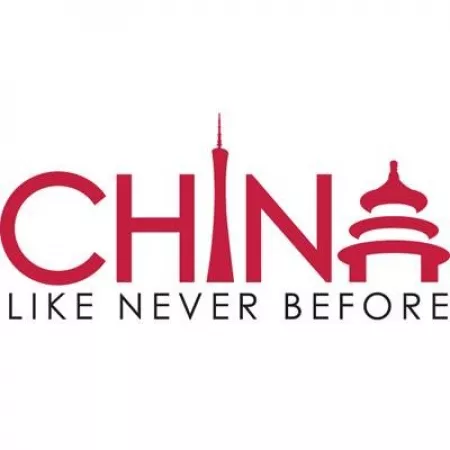Hi User
Navigation
Beijing Travel Guide
Beijing, the capital city of China, is a fascinating destination with a rich historical and cultural significance. Known for its ancient landmarks, such as the Great Wall and the Forbidden City, Beijing offers a unique blend of tradition and modernity. The city's vast geography encompasses both historical sites and bustling urban areas, making it a must-visit for travelers seeking a glimpse into China's past and present.Top Attractions in Beijing
1. The Great Wall of China 2. The Forbidden City 3. Tiananmen Square 4. Temple of Heaven 5. Summer PalaceBeijing is Famous for
Its historical landmarks, including the Great Wall of China and the Forbidden City.Top Attractions in Beijing
- The Great Wall of China - The Forbidden City - Tiananmen Square - Temple of Heaven - Summer PalaceWhat's Great about Travelling to Beijing?
- Rich history and culture - Unique blend of tradition and modernity - Delicious Chinese cuisine - Vibrant markets and shopping opportunitiesWhat's Not So Great about Travelling to Beijing?
- Language barrier for non-Mandarin speakers - Air pollution can be a concern - Crowded tourist attractions - Limited English signage in some areasTravel Tips for Beijing
- Carry a translation app or phrasebook - Be cautious of scams, especially in tourist areas - Use public transportation or ride-sharing apps for getting around - Respect local customs and traditionsImportant Beijing trip information
- Ideal Duration: Plan for at least 4-5 days to explore the major attractions.
- Best Time to Visit: Spring (April to May) and Autumn (September to October) for pleasant weather.
- Nearby Airports and Railway Stations: Beijing Capital International Airport, Beijing West Railway Station.
Popular Beijing Tour Packages From:
Budget Beijing Tour Packages Under:
Top 14 Places to visit in Beijing
Help & Support
Call Us Now
+91-8069145442
15 days & 14 nights
4.7 (81)
15 Nights - Best Of China
3D Beijing • 3D Guilin • 3D Huangshi • 3D Kunming • 3D Shanghai
Tour package by U-Tourizmo Services Pvt. Ltd.
Verified
INR 500,000 SAVE INR 125,000
INR 3,75,000 /Adult
FAQ's on Beijing
Q1: What is the best time to visit Beijing?
The best time to visit Beijing is during the spring (April to June) and autumn (September to October) when the weather is pleasant, and the city is alive with cultural events. Avoid the hot and humid summers and cold winters. Spring offers blooming flowers and clear skies, while autumn showcases beautiful foliage and comfortable temperatures.
Q2: Do I need a visa to travel to Beijing?
Yes, most tourists need a visa to travel to Beijing. Visitors can apply for a tourist visa (L visa) at the Chinese embassy or consulate in their country. Some nationalities may be eligible for visa-free transit or visa-on-arrival for short stays. Make sure to check the specific requirements based on your nationality before traveling.
Q3: What are the must-visit attractions in Beijing?
Beijing is home to iconic landmarks such as the Great Wall, Forbidden City, Temple of Heaven, and Summer Palace. Don't miss exploring the hutongs (narrow alleys) to experience traditional Beijing life. Other must-visit attractions include the vibrant Wangfujing Street, Tiananmen Square, and the modern architectural marvel of the Bird's Nest Stadium.
Q4: Is Beijing a safe place to travel?
Beijing is generally a safe city for travelers. Like any major city, be cautious of pickpocketing in crowded areas and beware of scams. Avoid discussing sensitive topics in public and be respectful of local customs. Certain areas may have traffic congestion, so exercise caution when crossing streets. Stay informed about any travel advisories before your trip.
Q5: What is the local currency in Beijing and can I use credit cards?
The local currency in Beijing is the Chinese Yuan (CNY). ATMs are widely available, especially in urban areas. Credit cards are accepted at most hotels, upscale restaurants, and international stores, but it's advisable to carry cash for smaller vendors and markets. Notify your bank before traveling to avoid any issues with card transactions.
Q6: What is the local cuisine like in Beijing?
Beijing cuisine is diverse, with popular dishes like Peking duck, dumplings, hot pot, and Beijing noodles. Explore the city's vibrant street food scene for snacks like jianbing (savory crepes) and lamb skewers. Be open to trying local delicacies such as stinky tofu and century eggs. Vegetarian options are available, but it's helpful to learn basic Mandarin phrases to communicate dietary preferences.
Q7: What transportation options are available in Beijing?
Beijing offers a convenient transportation network including the subway, buses, taxis, and ride-sharing services like DiDi. Taxis are affordable but make sure the driver uses the meter. Renting bicycles or using bike-sharing apps is a popular way to explore the city. Consider downloading transportation apps with English translations for easier navigation. Traffic can be congested during peak hours, so plan your journeys accordingly.
Q8: Are there any cultural norms or etiquette I should be aware of when visiting Beijing?
When visiting Beijing, respect local customs by addressing people with courtesy, using both hands to offer or receive items, and avoiding pointing with your finger. It's polite to learn a few basic Mandarin phrases and greet others with a smile. Dress modestly when visiting temples or religious sites. Do not discuss sensitive political topics in public, and always ask for permission before taking photos of locals. Embrace the rich cultural heritage of Beijing by participating in traditional activities like tea ceremonies or calligraphy lessons.
Q9: I am a travel agent. How can I buy travel leads of Beijing?
Register yourself as a travel agent at agents.tripclap.com and then you can buy travel leads to Beijing once your account is approved. For more details contact our support team at +91-8069186564 or support@tripclap.com
Certified
We accept (more)
Members of
Media Recognition
Trusted Partners
Award
Copyrights © TripClap. All Rights Reserved

